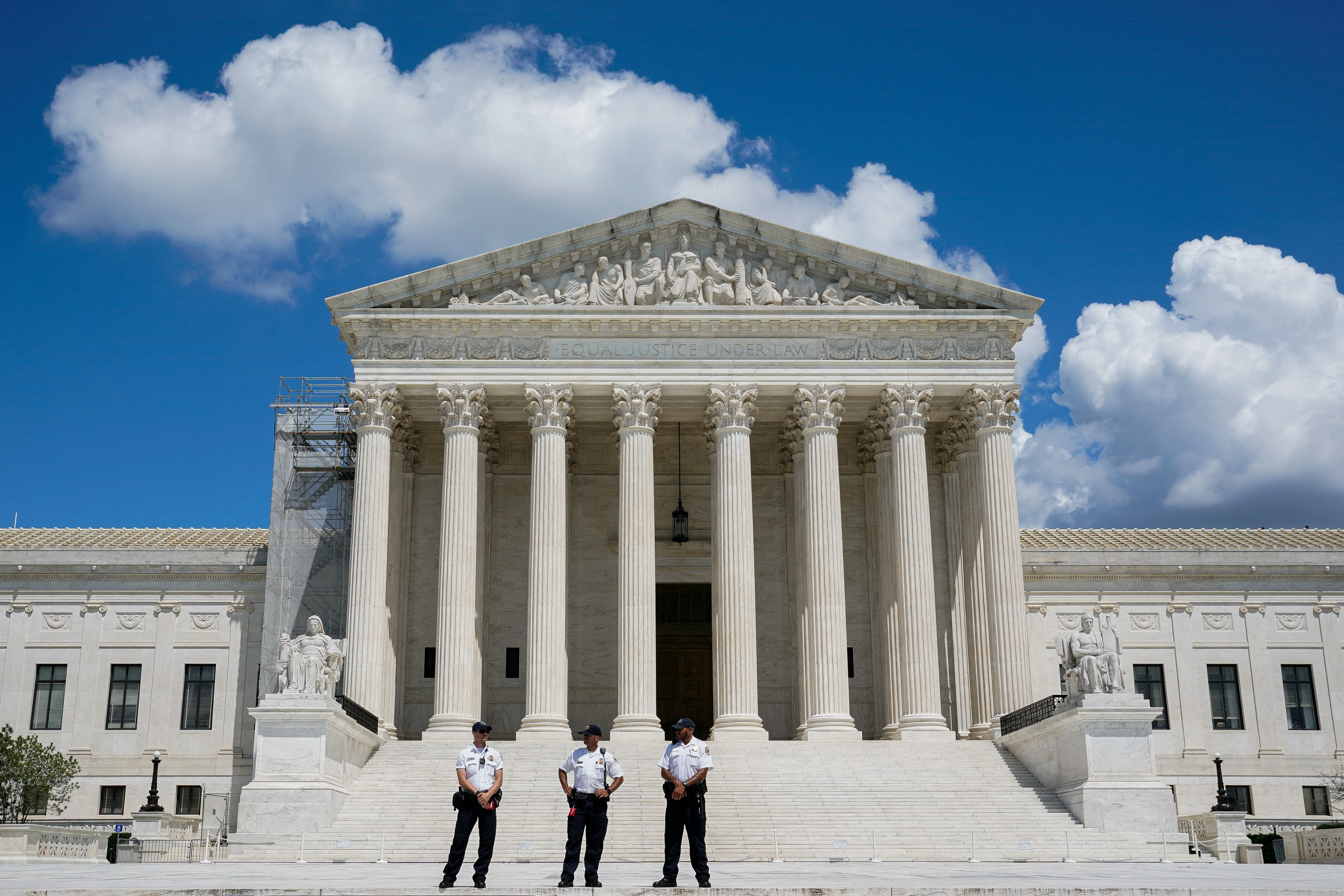
Washington, DC – The United States Supreme Court has allowed a voting rights lawsuit in Louisiana to proceed, after civil rights groups alleged that voting maps in the southern US state discriminated against Black voters.
The ruling by the top court on Monday paves the way for Louisiana officials to redraw the state’s congressional map to increase Black representation and deals a blow to the Republicans who carved up the six districts last year.
The decision follows an earlier ruling in which the Supreme Court’s justices sided with Black voters in Alabama who similarly claimed discrimination in violation of the civil rights-era Voting Rights Act.
The Louisiana case revolves around a congressional map drawn by Republican lawmakers for the 2022 elections that included only one Black-majority US House of Representatives district out of six in the state.
Black residents, who mostly vote Democratic, make up about one-third of Louisiana’s population.
The US House has 435 seats allocated to states in proportion to the size of their respective populations.
State legislatures draw congressional districts every 10 years to reflect demographic changes as documented by the US Census. Lawmakers often produce maps favouring their own political parties, a phenomenon known as gerrymandering that critics say harms democracy.
In the case of Louisiana, civil rights and Black advocacy groups sued state officials alleging racial bias in last year’s map.
“The 2022 congressional map dilutes Black voting strength in violation of the Voting Rights Act of 1965 by ‘packing’ large numbers of Black voters into a single majority-Black congressional district, and ‘cracking’ the State’s remaining Black voters among the five remaining districts, where they constitute an ineffective minority unable to participate equally in the electoral process,” the original legal complaint said in 2022.
A lower federal court blocked the congressional map last year and ordered the legislature to enact a “remedial congressional redistricting plan that includes an additional majority-Black congressional district”.
Louisiana immediately appealed the decision, and the Supreme Court froze the case, allowing the 2022 midterm election to proceed under the challenged map.
But with the Alabama decision on June 8, the top court rejected Republicans’ arguments for “race-neutral” electoral maps, which practically weaken the power of Black voters.
Democratic President Joe Biden welcomed the top court’s decision at that time.
“The right to vote and have that vote counted is sacred and fundamental — it is the right from which all of our other rights spring. Key to that right is ensuring that voters pick their elected officials — not the other way around,” he said in a statement.
The Alabama ruling was surprising to many observers, marking a reversal in the conservative-majority Supreme Court’s recent tendency to side with right-wing causes.
In 2013, the Supreme Court had relaxed federal oversight – previously mandated by the Voting Rights Act – on electoral rules enacted by some southern states with a history of racial discrimination.
On Monday, the Supreme Court vacated its pause on the Louisiana case, sending it back to the New Orleans-based Fifth Circuit Court of Appeals “for review in the ordinary course and in advance of the 2024 congressional elections”.
Democratic Congressman Troy Carter, who represents a Louisiana district, called Monday’s decision “great news” for the state.
“This decision shows that in a healthy democracy fair and equitable representation matters, whether to the people of Louisiana or anywhere else in the world,” Carter said on Twitter.
The American Civil Liberties Union (ACLU) advocacy group also called for a new electoral map in Louisiana, describing the current one as an “attack” on US democracy.
“For voters of color to be fully included in our democratic processes, Louisiana’s congressional maps must accurately reflect our state’s population,” ACLU of Louisiana Executive Director Alanah Odoms said in a statement.







